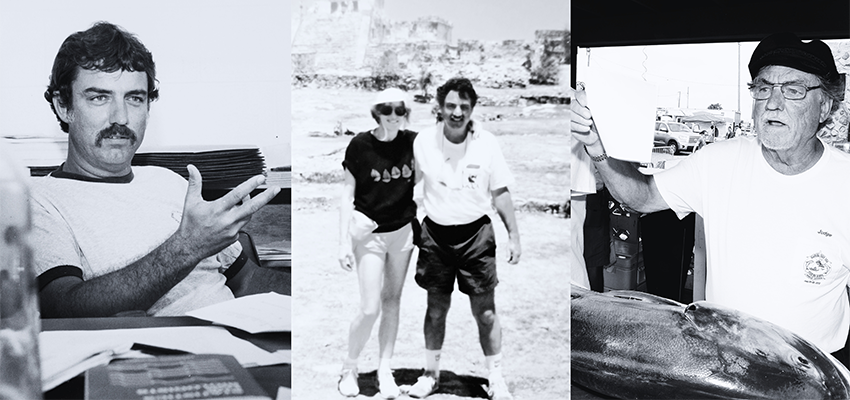Dr. Bob Shipp, Marine Fisheries Expert and Retired South Professor, Dies at 81
Posted on January 29, 2024 by Arts and Sciences

Dr. Robert L. Shipp, a University of South Alabama teacher and researcher who strongly influenced fisheries management in the Gulf of Mexico, has died at age 81. Shipp, professor emeritus of marine sciences, passed away surrounded by his children in Tampa, Florida, after a brief illness.
“Few professors have had the impact on the University and the region that he had,” said Dr. Sean Powers, director of the Stokes School of Marine and Environmental Sciences at South. “It is rare that a day goes by when someone doesn’t come up to me and ask about Dr. Bob and relay a story of the impact of a class they took from him, his role as a mentor, a conversation they had with him about fish or another accolade.
“His impact on students, colleagues and the community is truly inspiring.”
Shipp, originally from New Orleans, joined the Department of Biology at South in 1972 after completing his Ph.D. in biology at Florida State University. He spent 40 years at the University, retiring in 2013 as chair of the Department of Marine Sciences, which he had helped found.
“Dr. Bob literally wrote the book on introducing the importance of marine and environmental science to the people who are fortunate enough to call the Gulf Coast their home,” said University President Jo Bonner. “He was highly respected as a scholarly man who could explain his work to members of Congress, the media and the general public in a way that made everyone feel like he was talking to them, not lecturing at them.
“He also commanded universal respect from his students and colleagues, as well as scientists and peers throughout the country and around the world. He certainly put the University of South Alabama on the map in this important field of study.”
During Shipp’s 20 years as chair, the Department of Marine Sciences grew in research, academic reputation and national prominence. His leadership laid the foundation for the Stokes School of Marine and Environmental Sciences. He was also an active researcher and teacher at the Dauphin Island Sea Lab and served as interim director in 1977-78.
Shipp took every opportunity to advance his research. He served for 30 years as the official judge for the Alabama Deep Sea Fishing Rodeo, the largest fishing rodeo in the world, until his retirement in 2018. He loved fishing, but he also carefully monitored the rodeo catch as a scientist, using it as a snapshot of the Gulf of Mexico fish population at that moment.
“There was no fish he couldn’t identify,” Powers said. “He often went further, giving the fishermen the entire life history of the fish they caught.”
Shipp’s training was in systematics (identification and classification) and biogeography of marine fishes. He remained interested in those fields throughout his career, serving as editor of the journal Systematic Zoology.
Outside academic circles, he made his reputation in marine fisheries management. His research in the Gulf of Mexico on the red snapper fishery and the role of artificial reefs in marine resource management shaped policy and management in Alabama and throughout the United States.
Of his many scientific contributions, he was especially proud of his book, “Dr. Bob Shipp's Guide to Fishes of the Gulf of Mexico,” now in its second edition. Numerous governmental agencies, nongovernmental organizations and sport fishing groups consulted him for his expertise.
He served for 27 years on the Gulf of Mexico Fisheries Management Council, which oversees management of federal fisheries species in the Gulf of Mexico. That was one of the longest tenures of any council member.
“Dr Shipp was dedicated to fisheries science and how that science could best be used for fisheries management,” said Chris Blankenship, commissioner of the Alabama Department of Conservation and Natural Resources. “His almost three decades’ service on the Gulf Council was legendary. His common-sense approach to complex management issues set the standard we use today to manage our marine fishery resources.”
Shipp also served on the state’s Conservation Advisory Board and with the Gulf of Mexico Research Initiative, which was established to lead the first research effort following the Deepwater Horizon oil spill in 2010.
“He was a great friend and mentor, and he will be truly missed,” Blankenship said.
Shipp’s wife, Dr. Linda Shipp, preceded him in death after 50-plus years of true partnership in science and life. In their honor, the University has established The Drs. Linda and Robert Shipp Undergraduate Scholarship in Marine and Environmental Sciences. The Mitchell-Moulton Scholarship Initiative matches donations to the fund.


